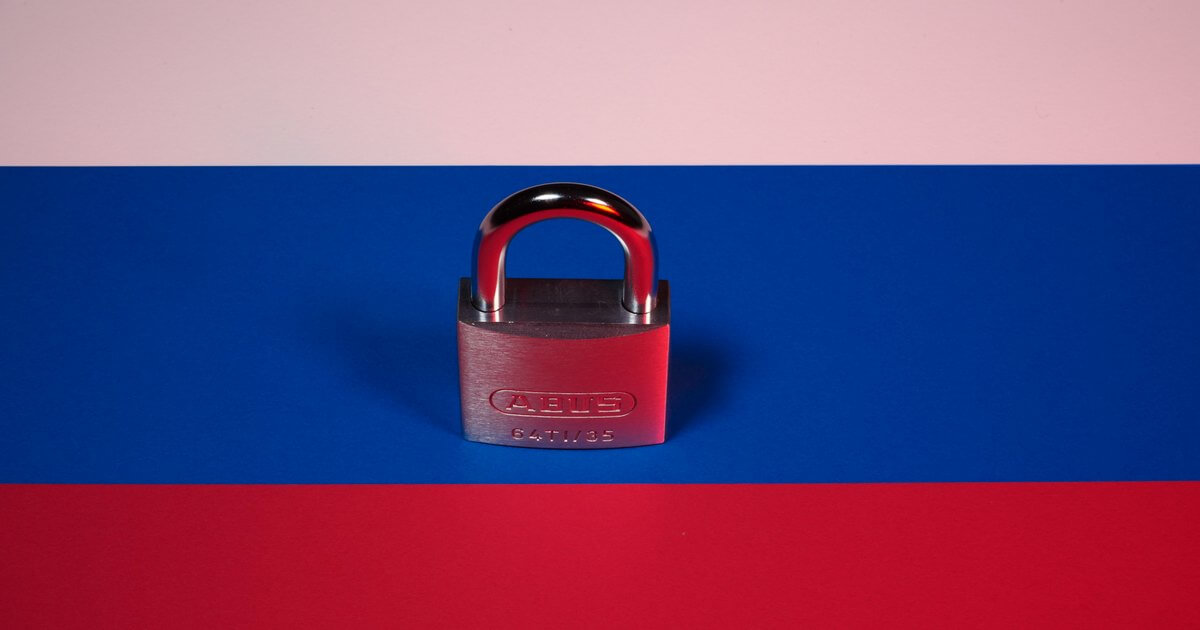Sanctions Enforcement Is Urgent To Cripple Russia
So far the sanctions are not hurting the Russian economy, Russia’s leaders and oligarchs.
March 10, 2023

A Strategic Intervention Paper (SIP) from the Global Ideas Center
You may quote from this text, provided you mention the name of the author and reference it as a new Strategic Intervention Paper (SIP) published by the Global Ideas Center in Berlin on The Globalist.
Western military support for Ukraine in its fight against Russian aggression has been formidable. Still greater shipments of arms are essential.
But so, too, is vigorous support for the far-reaching sanctions that Western governments have announced against Russia.
Sanction hard – to end the war
Effective sanctions are vital to cripple Russia’s economy and its war machine. And sanctions need to damage Putin’s closest supporters so much that they move to oust him and end the war.
The sanctions that have been announced over the last year by Western governments are greater than any set of such sanctions ever imposed against any nation.
Where are the teeth?
However, while Western allies keep announcing additional restrictive measures, these come largely in recognition of the fact that the effects of the previous measure have fallen short so far.
Successful implementation of the sanctions demands a far higher degree of economic and financial, diplomatic and prosecutorial enforcement. This can be secured if Western governments demonstrate the political will.
Economic and financial enforcement
In its most recent global economic forecasts (January 2023), the International Monetary Fund stated that, while the Russian economy declined by 2.2% in 2022, it is likely to grow by 0.3% this year and then see 2.1% growth in 2024. In other words, the Russian economy overall is on a stable path.
To be sure, the departure of hundreds of thousands of Russians to foreign lands in protest at the war will damage the economy – especially as many of these migrants have significant technology skills.
Similarly, the departure of hundreds of multinational corporations from Russia will do damage. Journalist Diane Francis has reported noted that research at Yale University suggests that more than 1,000 corporations, with $ 50 million or more in annual revenues, have departed.
Moreover, Western governments have set price caps on Russian oil. They have also started to develop plans to sanction Russian exports of assorted metals.
Undermining the sanctions
Exports of oil are absolutely crucial to Russia’s fortunes and the news on this front has been disappointing. Global Witness, which stresses that oil shipping companies have not acted illegally, notes:
“Commercially available data shows that over 821 million barrels of crude oil worth an estimated $64.7 billion has been exported from Russia via sea since the start of the war. A further 449 million barrels of refined oil products have been exported to the rest of the world since February 24th, 2022.”
Global Witness adds: “Western trading companies and oil majors still were involved in the trades of a significant volume of Russian oil since the invasion began – trading 384 million barrels of Russian oil, including over 136 million barrels of crude, worth an estimated $11.8 billion, and a further 247 million barrels of refined products. That equates to more than 30% of all the oil Russia exported by sea last year.”
Financial transactions are no less vital to the Russian economy. Alas, some Western banks continue to play significant roles. Italy’s largest bank, Unicredit, reported fourth-quarter 2022 profits in Russia were up 88.2% to €354 million.
The biggest culprit, though, is Russia’s lead foreign banker, Raiffeisen bank of Austria. It recently reported that its total global 2022 profits amounted to €3.6 billion. Fully 60% of that amount (€2.2 billion) are from business in Russia and Belarus – a fourfold increase from 2021.
Who else is doing business with a war criminal?
Most significantly, China, India, Turkey, and the United Arab Emirates, are all doing more business with Russia than ever before.
They are ensuring that the economic and financial sanctions are having a far less disruptive impact than leaders of Western governments predicted one year ago as Russia launched its war.
More economic sanctions
Reflecting the reality that economic sanctions have not hit as hard as anticipated, the Biden Administration used the first anniversary of Russia’s war on Ukraine, on February 24, 2023, to announce a host of new measures. These included, for example, imposing sanctions:
“on over 200 individuals and entities, including both Russian and third-country actors across Europe, Asia, and the Middle East that are supporting Russia’s war effort. As part of this announcement, we will target a dozen Russian financial institutions, in alignment with allies and partners, as well as Russian officials and proxy authorities illegitimately operating in Ukraine.”
Over time, the sanctions may well bite harder and Russian economic growth may fall short of the IMF’s current forecasts. But it is questionable whether they will bite hard enough to curb Putin’s resolve to crush Ukraine.
Russia’s elites have to take it to the chin
There is no evidence, for example, that Russia’s elite are suffering from the sanctions. True, they may by now be somewhat more inconvenienced.
For example, they can no longer dine in fine London restaurants, show off their yachts on the French Riviera, or sip champagne before the curtain rises at New York’s Metropolitan Opera.
It is important to hit and hurt the corrupt cabal running Russia, that embraces crooked politicians and judges, oligarchs and organized crime bosses, all who take scant interest in the welfare of the mass of Russian citizenry.
The stunning silence of Western justice authorities
After a blizzard of publicity in March and April 2022 about massive mansions and yachts belonging to oligarchs being seized, there has been an eerie silence from Western justice authorities.
While Russians have been wildly competing to pay huge sums for luxury properties in Dubai, and dock their yachts there, so avoiding sanctions, there have been scant Western confiscations of Russian assets, nor arrests of oligarchs for sanction violations over the last year.
The U.K.’s National Crime Agency announced that it had arrested three people, including “a wealthy Russian businessman” for money laundering, but they refused to name the villains and swiftly released them on bail with no court date set. The U.S. authorities have announced only a few minor cases against sanctioned Russians.
Switzerland…
The Swiss, striving to demonstrate solidarity, have indicted four employees at Zurich’s Gazprombank (the affiliate of the Russian energy company) for allegedly banking cash for a Russian cellist with a $50 million account. He has supposedly fronted for Putin’s personal wealth.
At the same time, rather than following up on media reports of dirty Russian cash flowing into Credit Suisse, the Swiss banking authorities are investigating the journalists for violating Swiss bank secrecy laws.
Diplomatic enforcement
Perhaps recognizing that its sanctions were not sufficiently effective, the EU Commission announced new measures in December 2022 – 10 months after launching its new sanctions program – stating that these “will make it easier to investigate, prosecute and punish violations of restrictive measures in all Member States alike.”
If the announced sanctions against Russia’s economy and 5,000 Russian individuals and institutions are to bite and influence the Kremlin’s resolve to continue its war, then leaders of Western governments must back their anti-Russian rhetoric with tough diplomatic actions.
Let’s target Turkey and the UAE
The first targets need to be Turkey and the UAE. Both of the governments of these countries have crucial economic and strategic needs to ensure good relations with Western governments. They need our weapons. They need to import a large array of goods and services. They need access to our capital markets.
Western governments, led by the Biden Administration, have been far too reluctant to get tough with these countries in terms of warning them that their relationships will be soured if they continue to support Russia and the oligarchs.
Toothless U.S. authorities?
According to the U.S. Treasury, its “Office of Foreign Assets Control (OFAC) has added over 2,500 Russia-related targets to the Specially Designated Nationals and Blocked Persons (SDN) List since February 2022, including approximately 2400 individuals and entities, 115 vessels, and 19 aircraft.”
Yet, the lack of serious prosecutions by U.S. authorities raises questions as to whether OFAC and other government departments have the resources to fully monitor and sanction all the targets, individuals and institutions, on its lists.
When it comes to finance, Western governments have been desperately weak in confronting governments in, for example, the UAE, Cyprus, Luxembourg, Austria and Switzerland. They continue to permit substantial transactions involving prominent Russians or holding companies that front for these Russians.
The vast assets of the oligarchs – amounting to hundreds of billions, maybe trillions of dollars – remain invested in the major capital markets via myriad holding companies and global wealth management departments at leading Western banks, private equity firms and hedge funds.
Conclusion
The bank financial regulatory and justice authorities across the EU, UK and North America have failed, so far, to mount a meaningful assault on the owners and managers of this cash.
This needs to change. The oligarchs and their financial enablers need to suffer to assure Ukraine’s future as a democracy.
Takeaways
Authorities across the EU, UK and North America have failed, so far, to mount a meaningful assault on Russian financial assets. This needs to change. The oligarchs and their financial enablers need to suffer to assure Ukraine’s future as a democracy.
Effective sanctions are vital to cripple Russia’s economy and its war machine. Sanctions need to damage Putin’s closest supporters so much that they move to oust him and end the war.
Successful implementation of the sanctions demands a far higher degree of economic and financial, diplomatic and prosecutorial enforcement. This can be secured if Western governments demonstrate the political will.
While the Russian economy declined by 2.2% in 2022, it is likely to grow by 0.3% this year and then see 2.1% growth in 2024, according to the IMF. In other words, the Russian economy overall is on a stable path.
Shame on Austria’s Raiffeisenbank: It recently reported that its total global 2022 profits amounted to €3.6 billion. Fully 60% of that amount (€2.2 billion) are from business in Russia and Belarus – a fourfold increase from 2021.
Shame on China, India, Turkey, and the United Arab Emirates, are all doing more business with Russia than ever before – even though Putin, indisputably, is a war criminal.
They are ensuring that the economic and financial sanctions are having a far less disruptive impact than leaders of Western governments predicted one year ago.
Over time, the sanctions may well bite harder and Russian economic growth may fall short of the IMF’s current forecasts. But it is questionable whether they will bite hard enough to curb Putin’s resolve to crush Ukraine.
It is important to hit and hurt Putin’s corrupt cabal – the leeches that embrace crooked politicians and judges, oligarchs and organized crime bosses. They are united in taking scant interest in the welfare of the mass of Russian citizenry.
While Russians have been wildly competing to pay huge sums for luxury properties in Dubai and dock their yachts there, thus avoiding sanctions, there have been scant Western confiscations of Russian assets.
If the announced sanctions against Russia’s economy and 5,000 Russian individuals and institutions are to bite, then leaders of Western governments must back their anti-Russian rhetoric with tough diplomatic actions.
We should target Turkey and the UAE. Both need to ensure good relations with Western governments. They need our weapons. They need to import a large array of goods and services. They need access to our capital markets.
Despite the sanctions, the UAE, Cyprus, Luxembourg, Austria and Switzerland continue to permit substantial transactions involving prominent Russians or holding companies that front for these Russians.
A Strategic Intervention Paper (SIP) from the Global Ideas Center
You may quote from this text, provided you mention the name of the author and reference it as a new Strategic Intervention Paper (SIP) published by the Global Ideas Center in Berlin on The Globalist.


